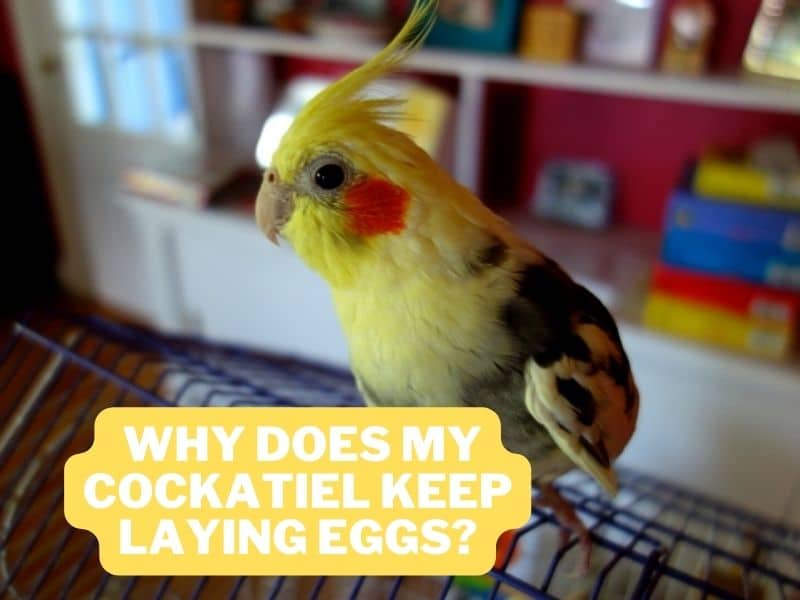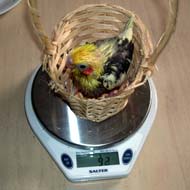Start with positive reinforcement techniques and consistent training sessions to train your macaw. Afterwards, gradually introduce new commands and appropriately socialize them.
Owning a macaw is one of bird lovers’ most exciting experiences. These intelligent birds are well-known for their beauty, long lifespan and engaging personalities.
However, getting macaws to obey simple commands can be daunting, especially if not done with patience and determination.
Whether you’re bringing home a new pet or trying to improve your relationship with an existing bird, this guide outlines some essential tips for training your macaw.
With these tips, you’ll learn how to make training fun and rewarding, so you and your bird can enjoy the learning process.

Credit: birdsupplies.com
Understanding Your Macaw’S Behavior
Training your macaw can be challenging, but understanding its behaviour is crucial. Macaws are intelligent birds that require socialization from a young age. Knowing your macaw’s characteristics can help you identify its likes and dislikes when it comes to training.
Macaws are social creatures that thrive on attention and interaction, so socialization is essential. Moreover, socialization ensures that your macaw is comfortable around people and other birds. However, it is important to note that macaws can also exhibit territorial behaviour, which can be addressed by careful training.
By understanding your macaw’s behaviour and incorporating socialization into its training, you can enjoy a happy and healthy relationship with your feathered friend.
Building Trust With Your Macaw
Building trust with your macaw building trust is crucial when it comes to training your macaw. The importance of trust cannot be overstated since the bird’s ability to bond with its human companion determines the success of the training. Create a friendly and secure environment for your macaw by talking softly and offering treats frequently.
Ensure the bird is comfortable around you before you attempt to train it. Earning the bird’s trust may take a while, but it is worth the effort. It is also essential to be consistent with your training techniques and to positively reinforce good behaviour.
Remember, patience is key when building trust with your macaw.
3 Tips to Help Train Your Pet Macaw
Positive Reinforcement Training
Positive reinforcement is the act of rewarding desired behavior, increasing the likelihood of its recurrence. It’s an effective way to train your macaw without hurting or scaring it. This training involves recognition and rewards such as praising, playing, or giving treats.
It focuses on positive behavior and ignores negative behavior. You should use a step-by-step process to teach basic commands, breaking them down into small parts, making it easier for the macaw to learn. Use repetition to reinforce that behavior. If your macaw has behavior issues, problem-solving is much better than breed-specific training.
Remember to always stay calm, if your macaw team notices your anxiety, it might lead to further unfavourable interactions. Your macaw will be a well-behaved and happy bird with patience and proper training.
Providing Enrichment And Activities For Your Macaw
Providing enrichment and activities for your macaw is essential to keeping your pet happy and healthy. Understanding the role of enrichment is crucial in providing your bird with a stimulating environment. Some types of enrichment activities include foraging, puzzles, and toys.
Choosing the right cage and accessories, such as perches and swings, is vital in providing enrichment. Switch up the activities and accessories regularly to keep your macaw engaged and entertained. A well-stimulated bird is a happy bird, and a happy bird means a happy owner.
Start implementing these enrichment strategies and watch your macaw thrive!
Taking Care Of Your Macaw’S Health
One of the best ways to care for your macaw is to recognize signs of illness. Some common ones include lack of appetite, lethargy, and unusual behaviour. Developing a maintenance schedule can also help prevent illness. This should include regular cleaning of your macaw’s cage, feeding it the proper diet, and providing regular exercise.
Regular veterinary check-ups are also essential. Your veterinarian can perform routine tests and help identify any health problems. Remember, prevention is key when it comes to your macaw’s health. So, always be proactive and alert for any signs that your macaw may not feel well.
Frequently Asked Questions Of How To Train Your Macaw
How Do I Start Training My Macaw?
First, establish a strong bond with your bird by spending time with them daily. Then, start with simple commands such as “step up” and “step down. ” consistency, positive reinforcement, and patience are key components of macaw training.
What Should I Use For Macaw Training Treats?
Treats such as fruit, nuts, or seed fragments should be small, healthy, and enticing to your bird. Avoid providing too many treats or unhealthy options, as excessive weight gain can lead to health issues.
How Long Does It Take To Train A Macaw?
Training a macaw can be lengthy and may take several months or even years. The time will depend on the bird’s personality, previous experiences, and the time you have available to train. Consistency, patience, and positive reinforcement are essential components of training.
Can You Teach An Old Macaw New Tricks?
Yes! Macaws are known for their intelligence and eagerness to learn. While older birds may take longer to adapt to new training methods, with consistency and positive reinforcement, teaching an old macaw new tricks is possible.
Conclusion
Overall, training your macaw can be a challenging yet rewarding experience. Remember always to prioritize your bird’s safety and positive reinforcement. Consistency, patience, and positive reinforcement are the keys to a well-trained macaw. Start with training simple behaviours, and gradually work towards more advanced tricks.
Use a variety of treats and toys to keep your macaw engaged and motivated. Always seek professional help if you are struggling with training or if your macaw is displaying concerning behaviour. With dedication and patience, you can develop a strong bond with your macaw and enjoy a happy and healthy relationship for years to come.
So, start training your macaw today and watch them soar to new heights!
{ “@context”: “https://schema.org”, “@type”: “FAQPage”, “mainEntity”: [ { “@type”: “Question”, “name”: “How do I start training my macaw?”, “acceptedAnswer”: { “@type”: “Answer”, “text”: “To begin, establish a strong bond with your bird by spending time with them daily. Then, start with simple commands such as \”step up\” and \”step down.\” Consistency, positive reinforcement, and patience are key components of macaw training.” } } , { “@type”: “Question”, “name”: “What should I use for macaw training treats?”, “acceptedAnswer”: { “@type”: “Answer”, “text”: “Treats should be small, healthy, and enticing to your bird, such as fruit, nuts, or seed fragments. Avoid providing too many treats or unhealthy options, as excessive weight gain can lead to health issues. Treats should be used sparingly and as a reward for good behavior” } } , { “@type”: “Question”, “name”: “How long does it take to train a macaw?”, “acceptedAnswer”: { “@type”: “Answer”, “text”: “Training a macaw can be a lengthy process and may take several months or even years. The length of time will depend on the bird’s personality, previous experiences, and the amount of time you have available to train. Consistency, patience, and positive reinforcement are essential components of training.” } } , { “@type”: “Question”, “name”: “Can you teach an old macaw new tricks?”, “acceptedAnswer”: { “@type”: “Answer”, “text”: “Yes! Macaws are known for their intelligence and eagerness to learn. While older birds may take longer to adapt to new training methods, with consistency and positive reinforcement, it’s possible to teach an old macaw new tricks.” } } ] }




